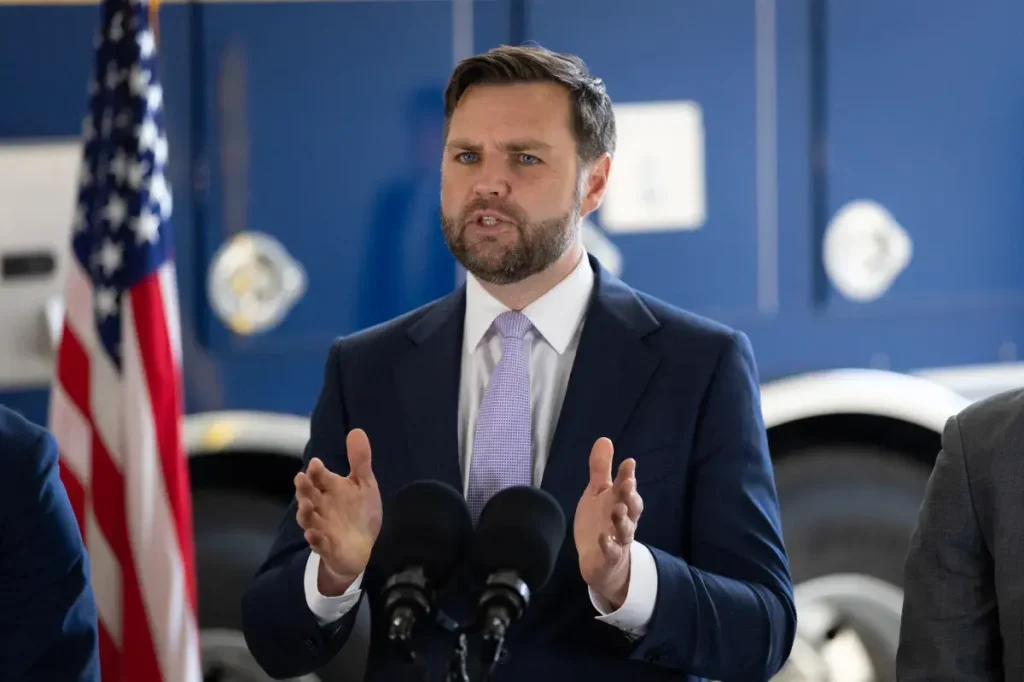Government Shutdown Intensifies: Americans Face Growing Impact as Political Battle Rages On
As the federal government shutdown drags on, the ripple effects are increasingly touching everyday Americans, with Vice President JD Vance warning that while the administration has so far “shielded the American people from the worst of the consequences, all of this is coming, and soon.” The shutdown, which has already furloughed thousands of federal workers and forced essential personnel to work without pay, is now threatening to significantly disrupt air travel across the nation. The Federal Aviation Administration announced a 10% reduction in air traffic at 40 major U.S. airports beginning November 7 due to staffing shortages, signaling the first major impact that ordinary citizens might feel regardless of their political affiliation or connection to government employment.
The shutdown has evolved from a distant political squabble to a crisis with real consequences for vulnerable populations and critical services. Vance highlighted that beyond travel disruptions, “Food stamp and other assistance programs running out for needy Americans” and “great strains on our military and national security” are imminent threats if the impasse continues. While military service members will continue receiving paychecks thanks to emergency action by the Department of Defense, countless other federal workers face mounting financial uncertainty. The situation represents more than just political theater—it demonstrates how partisan gridlock in Washington can directly affect public safety, economic stability, and essential services that Americans rely on daily, from air travel to food assistance programs.
The political blame game has intensified alongside the shutdown’s effects. Former President Trump took to his social media platform Truth Social to declare, “The Radical Left Democrats are causing millions of Americans who depend on food stamps to go without benefits, they’re forcing federal workers to go without paychecks, and they’re stranding thousands of travelers at airports!” Meanwhile, Vice President Vance characterized Democrats’ approach as “genuinely unprecedented,” stating that “the consequences of this national emergency fall on every senator and congressman who refuses to open the government.” As each side attempts to pin responsibility on the other, Americans are caught in the middle of a political standoff with no immediate resolution in sight.
Political experts suggest the shutdown battle reflects deeper partisan divisions that have come to define American governance. D. Stephen Voss, a political science professor at the University of Kentucky, framed the essential question facing the public: “Are the Democrats wrong for letting the government shut down in their attempt to reverse the so-called Big Beautiful Bill, or are the Republicans wrong for refusing to undo their work now that they need Democratic votes to end the shutdown?” This fundamental question about compromise and governance remains unresolved as the impacts of the shutdown grow more severe. Voss also raised concerns about potential changes to Senate rules, suggesting the administration might be “trying to build up the sense of crisis to a fever pitch, as a prelude to Republicans ending the Senate filibuster”—a procedural change that could have far-reaching implications for American governance beyond the immediate crisis.
The shutdown occurs against the backdrop of recent elections and evolving political dynamics. Columbia University professor Robert Y. Shapiro observed that “Republicans are now up against the Democrats in their face, so to speak, on affordability and economic hardship, with the Democrats having momentum given what just happened on election day.” This context shapes how both parties approach the standoff, with electoral considerations potentially influencing their willingness to compromise. Shapiro suggested that Republicans might eventually concede on healthcare issues—a topic where polling data shows them at a disadvantage—while Democrats might feel less pressure regarding border security following recent electoral outcomes. The political calculus for both parties continues to evolve as the shutdown’s impact on everyday Americans grows more pronounced.
With no immediate negotiations scheduled to reopen the government, Americans face uncertainty about when normal federal operations will resume. Airlines, unions, and government officials continue expressing mounting concern as service reductions spread across core functions of government. The aviation industry, a critical component of the nation’s infrastructure and economy, stands as the most visible casualty so far, but experts warn that other essential services could soon face similar disruptions if the political impasse continues. As the shutdown transitions from what Vance called “farce into tragedy,” the American public increasingly bears the burden of Washington’s inability to reach consensus on funding the basic operations of government—a stark reminder of how political dysfunction in the capital can translate into real hardships for citizens nationwide regardless of their political affiliations.


